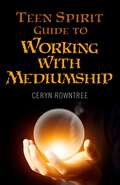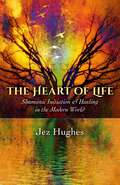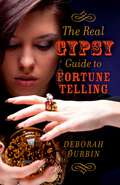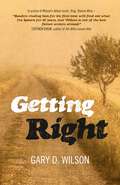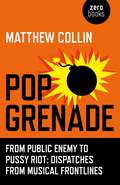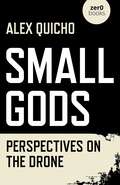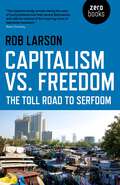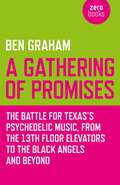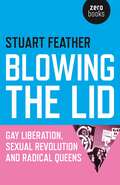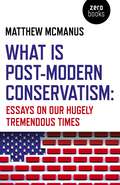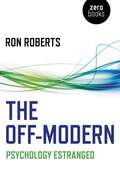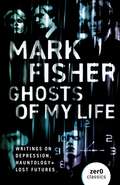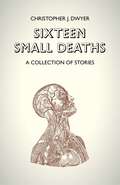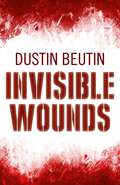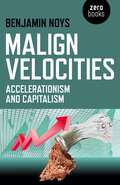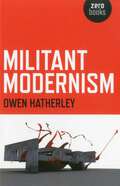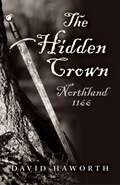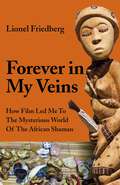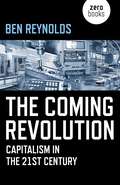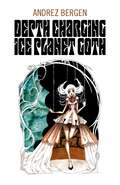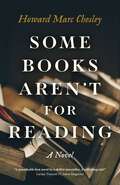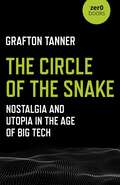- Table View
- List View
Anne of Cleves: Henry VIII's Unwanted Wife
by Sarah-Beth WatkinsAnne of Cleves left her homeland in 1539 to marry the king of England. She was never brought up to be a queen yet out of many possible choices, she was the bride Henry VIII chose as his fourth wife. Yet from their first meeting the king decided he liked her not and sought an immediate divorce. After just six months their marriage was annulled, leaving Anne one of the wealthiest women in England. This is the story of Anne's marriage to Henry, how the daughter of Cleves survived him and her life afterwards.
Teen Spirit Guide to Working with Mediumship
by Ceryn RowntreeTeen Spirit Guide to Working with Mediumship is a brilliant and comprehensive guide to working and communicating with the Spirit world. Although primarily written for young adults, it can also be utilized by anybody wanting to start their journey into working with Spirit but struggling with where to go for advice or more information. In easy and clear steps, Ceryn Rowntree will take you through the basics of connecting with the Spirit world, to more advanced techniques, and how to do it in a safe way that's comfortable for you as an individual.
Daniel Defoe and the Bank of England: The Dark Arts of Projectors
by Martin Parker Valerie HamiltonThis little book tells the truthful story of how the Bank of England actually came into being. It is a story of pirates, treasure, random good fortune and sheer determination. This is an institution founded on risk, daring and imagination. The tale is entangled with that of the early novel, in particular the fortunes of one Moll Flanders, an entrepreneur of sexual relations in the growing London market for capital in the early eighteenth century. These accounts are woven together with the life-stories of Daniel Defoe and William Paterson, founders of two of the key institutions of our modern age, the novel and the corporation. This reveals connections which are nowadays forgotten, and which the fractured specialisms of &‘Literature&’, &‘History&’ and &‘Business&’ can rarely see. These tales are set against the backdrop of the long eighteenth century - fervent years of inventiveness, high risk gambling, and political revolution. The authors show that the dark arts of deceit, and the credibility of fictions, are requirements for any creative enterprise, and that all organizations are fictions.
The Heart of Life: Shamanic Initiation & Healing In The Modern World
by Jez HughesThe Heart of Life is an exploration into the depths of what it means to be alive, when the &‘cellophane packaging we wrap around life to keep it safe and sterile has been unwrapped and discarded&’. It reveals how the ancient path of shamanism and indigenous wisdom can offer us solutions to the many problems facing the modern world, both global and collective. It offers a unique cosmology that explores how these problems, from potential global ecological catastrophe to the multitude of mental and physical illnesses afflicting individuals, are intrinsically linked and how they can be treated. How the soul sickness that is affecting the modern world may well be the initiation we are going through as a species. This is illustrated through the personal and professional experiences of contemporary shaman Jez Hughes, who cured himself successfully of convulsive fits and mental illnesses using shamanic methods and has since gone on to treat thousands of people in the same way.
The Real Gypsy Guide to Fortune Telling
by Deborah DurbinThe Real Gypsy Guide to Fortune Telling is a concise yet comprehensive guide focusing on different types of fortune-telling and divination techniques that are easy and safe to use. Easy to understand and written by an expert intuitive with over 30 years' experience, the book will take you through Tarot Reading, Rune Reading, Tea-Leaf Reading, Angel Card Reading, and much much more.
Getting Right
by Gary D. WilsonSuppose your more than mildly irritating leech of a sister calls you, as she usually does wanting money, only this time she says instead that she has cancer and in the course of the conversation challenges you to write the story of her life. You say, sure, you'll do that but you'll tell it the way you see it. The tale that emerges involves not only the dying sister, Connie, but brother Len as well. And it's also about "me," the sibling invited to narrate their shared story and whose interplay of memory and imagination raises the question of whether "the truth" of Connie's life - or of anyone's for that matter - can ever be known.
Pop Grenade: From Public Enemy to Pussy Riot - Dispatches from Musical Frontlines
by Matthew CollinAn adrenalin-charged trip through some of the cultural flashpoints of the past few decades, Pop Grenade celebrates the power of music as a force for change. Based on first-hand, personal reportage from raves, riots and rebellions, it explores how music has been used as a weapon in struggles for liberation and attempts to create temporary paradises. From Berlin&’s anarchic techno scene after the fall of the Wall to outlaw sound systems in wartime Bosnia, from Moscow during the crackdown on Pussy Riot to New York in the militant early years of hip-hop, it tells the extraordinary stories of some of the world&’s most audacious musical freedom fighters, disco visionaries and rock&’n&’roll rebels with a cause.
Small Gods: Perspectives on the Drone
by Alex QuichoSmall Gods deconstructs the mythology of the drone: as soothing sound, aerial spy, and killing machine. When we say 'drone technology,' we can mean the tanpura, a plucked-string instrument originating in 16th century India, or the Gorgon Stare, an aerial surveillance technology designed by the US military - and evoke competing notions of terror and transcendence. Small Gods leans into this ambiguity. As each chapter focuses on the work of an artist with a unique understanding of 'the drone', the book illuminates myriad facets of these entangled technological entities. Opening with William Basinki's first glimpse of the ash-clouds of 9/11 - which spawned both The Disintegration Loops and the drone-driven War on Terror - the narrative then zooms into the representational sleights of hand of British and American artists preoccupied with the West's stake in endless drone wars. Its midsection lands us in the doldrums: where Anne Imhof's Angst, Anna Mikkola's drone-watched runner, and Atef Abu Saif's drone war memoir find maddening safety in boredom, raising questions about the trade-offs between security and surveillance. In the final section, the narrative uncouples from earthly oppression - we're freed to explore future and spirit worlds with artists including Korakrit Arunanondchai, Lawrence Lek, and WangShui, all of whom use drone technology to envision a future beyond the burden of colonialism, racism, exclusion or, simply, representation. Empty metal becomes a vessel for escape, connection, or intention; a future-facing spirit, a ride into the afterlife, a god or a ghost.
Capitalism vs. Freedom: The Toll Road to Serfdom
by Rob LarsonFor years, we&’ve been taught that capitalism is good for freedom. Dominant right-wing talk radio hosts to this day recommend &“libertarian&” classics like Hayek&’s Road to Serfdom and Friedman&’s Capitalism and Freedom that claim markets free us, and this picture still dominates the schools and the political spectrum. Well get bent, one percent, because Rob Larson&’s Capitalism vs. Freedom: The Toll Road to Serfdom puts big business under a microscope. This book debunks the conservative classics while demonstrating that the marketplace has its own great centers of power, which the libertarian tradition itself claims is a limit to freedom. In fact, Larson illustrates how capitalism fails both this and other concepts of human liberty—not just failing to establish a right to a share of society&’s production, but also leaving us subject to the great power plays of the one percent&’s corporate property.
A Gathering of Promises: The Battle for Texas's Psychedelic Music, from The 13th Floor Elevators to The Black Angels and Beyond
by Ben GrahamA Gathering of Promises is a history of acid rock and psychedelic music in and from the state of Texas, focusing largely on its mid-1960s origins with the 13th Floor Elevators and contemporaries such as the Golden Dawn, the Red Crayola and Bubble Puppy, and following its development to the present day and the popularity of the annual Austin Psych Fest. Grounded in a strong social, cultural and historical context, the book asks how Texas produced some of the most extreme and influential psych of any era despite a prevailing social ethos of Christian conservatism and the strictest drug laws of any American state. It looks at how this environment shaped and affected the music, alongside the Texan frontier spirit and its championing of expansion, freedom and individualism.
Blowing the Lid: Gay Liberation, Sexual Revolution and Radical Queens
by Stuart FeatherThe Gay Liberation Front founded in 1970 urged gay men and gay women to unite around a simple set of demands among which were calls for an end to discrimination against homosexuals in employment, in sex education, in the age of consent and in being treated as sick by the medical establishment. GLF saw itself as a people&’s movement for gays, socialist by virtue of its demand for social change, and revolutionary in recognizing the rights of other oppressed minorities to determine the fight for their own demands. All history is personal. The author of this political memoir is the first participant of the Front to write a history of the lesbians and gay men who joined Gay Liberation and through a process of Coming Out and radicalization initiated an anarchic campaign that permanently changed the face of this country.
What Is Post-Modern Conservatism: Essays On Our Hugely Tremendous Times
by Matthew McManusWhat is post-modern conservatism? How it has come to dominate the political landscape in many developed countries? Edited by Matt McManus, Professor of Politics and International Relations at the University of Tec de Monterrey, What Is Post-Modern Conservatism touches on how technological, economic, and social transformations of the post-modern epoch have brought about a political landscape where the irrational and traditionalist aspects of conservative thought have mutated into the hugely tremendous forms we see today. With contributory essays from Dylan De Jong, Erik Tate, Borna Radnik, David Hollands and Conrad Hamilton.
The Off-Modern: Psychology Estranged
by Ron RobertsSociety is undergoing a process of deep change and transformation as the neoliberal order moves into crisis. Contemporary psychology, mired in exceptionalism and individualism, fails to address this broader context and continues with a fragmented reductionist approach which is alienating to students and practitioners alike. In the lifetime of the discipline there have been several distinct frameworks to emerge - psychoanalytic, behaviourist and cognitive. To these one might add Kelly&’s Personal Construct Theory as the last attempt to present a coherent and challenging framework for how to understand our lives. As society moves into a new phase, Ron Roberts argues the need for a new way of &‘doing&’ psychology which challenges not only the existing epistemological and reductionist outlook, but the centrality of a scientific professional discourse as a suitable vehicle for improving lives and making sense of the world.
Ghosts of My Life: Writings on Depression, Hauntology and Lost Futures
by Mark FisherThis collection of writings by Mark Fisher, author of the acclaimed Capitalist Realism, argues that we are haunted by futures that failed to happen. Fisher searches for the traces of these lost futures in the work of David Peace, John Le Carre, Christopher Nolan, Joy Division, Burial and many others.
Sixteen Small Deaths: A Collection of Stories
by Christopher J. DwyerSixteen Small Deaths is a collection of short fiction culled from nearly a decade of work from Boston-based author, Christopher J. Dwyer. The stories in the collection skirt the edges of noir, horror and science-fiction, sometimes bringing the hazy boundaries of all three genres together within a single piece. Sixteen Small Deaths will take the reader on a journey of heartbreak and terror while diving into the dark recesses of the mind.
Invisible Wounds
by Dustin BeutinIn May, 2010, Special Agent Morgan Huntley learns that a close colleague has been abducted while investigating the shocking murders of two soldiers within a NATO command facility in Kabul, Afghanistan. Within days, it becomes clear that his friend's investigation had uncovered a disturbing rumor: a group of retired U.S. Army personnel may have returned to Afghanistan to build a drug cartel, posing as defense contractors and utilizing the Army's own logistics network. With the clock ticking on both the case and his friend&’s life, Morgan accepts an offer to volunteer for an undercover mission to Afghanistan, posing as a civilian contractor. Upon arrival, however, Morgan learns that the kidnapping is but one small piece of a wider and more dangerous puzzle. Worse, Morgan's civilian cover story is immediately endangered when a close friend of his ex-wife becomes a key asset in his investigation. Invisible Wounds is a riveting thriller that navigates a world of hidden agendas, brazen deceit, and costly choices. Simultaneously gripping and fast-paced it is also a meaningful consideration of the generational costs of a decade of global conflict.
This Is All He Asks of You
by Anne EgsethSpanning Norway, Washington DC and Greece, This Is All He Asks of You is a visionary story about letters never sent, life once flowing and now frozen, swim-flying in golden light and the beauty of human connection. Above all, it is a story about how sad it would be if everything became like everything else.
Malign Velocities: Accelerationism and Capitalism
by Benjamin NoysWe are told our lives are too fast, subject to the accelerating demand that we innovate more, work more, enjoy more, produce more, and consume more. That&’s one familiar story. Another, stranger, story is told here: of those who think we haven&’t gone fast enough. Instead of rejecting the increasing tempo of capitalist production they argue that we should embrace and accelerate it. Rejecting this conclusion, /Malign Velocities/ tracks this 'accelerationism' as the symptom of the misery and pain of labour under capitalism. Retracing a series of historical moments of accelerationism - the Italian Futurism; communist accelerationism after the Russian Revolution; the 'cyberpunk phuturism' of the &’90s and &’00s; the unconscious fantasies of our integration with machines; the apocalyptic accelerationism of the post-2008 moment of crisis; and the terminal moment of negative accelerationism - suggests the pleasures and pains of speed signal the need to disengage, negate, and develop a new politics that truly challenges the supposed pleasures of speed.
Militant Modernism
by Owen HatherleyMilitant Modernism is a defence against Modernism's many detractors. It looks at design, film and architecture - especially architecture — and pursues the notion of an evolved modernism that simply refuses to stop being necessary. Owen Hatherley gives us new ways to look at what we thought was familiar — Bertolt Brecht, Le Corbusier, even Vladimir Mayakovsky. Through Hatherley's eyes we see all of the quotidian modernists of the 20th century - lesser lights, too — perhaps understanding them for the first time. Whether we are looking at Britain's brutalist aesthetics, Russian Constructivism, or the Sexpol of Wilhelm Reich, the message is clear. There is no alternative to Modernism.
Hidden Crown: Northland - 1166
by David HaworthWhat would have happened if William of Normandy had lost the Battle of Hastings? What kind of nation would have been born if King Harald of Norway had conquered England instead? How different our history could have been if the wind had blown in the other direction for just one day in the summer of 1066. The Hidden Crown is an alternate-history adventure that takes place a hundred years after such events. The country that would have become Norman England has split in two: the Anglo-Norse kingdom of Northland and the Saxon realm of England. The two nations have been at peace for nearly a century, that is until the dying king of England unexpectedly names his nine-year-old granddaughter, Adelise, as his heir. During her journey home to England through the wilds of Northland, the child-queen is rescued from a bloody assassination attempt by the young Northlandic soldier, Thurstan Elfsson. Now the two sole survivors of the attack must find safety and allies in a desperate flight across the two kingdoms, never knowing whether they are about to encounter friend or foe.
Forever in My Veins: How Film Led Me to the Mysterious World of the African Shaman
by Lionel FriedbergEmmy Award-winning producer and New York Times bestselling author Lionel Friedberg has spent 50 years making films as diverse as full-length theatrical features and television documentaries. After growing up in South Africa during the troubled era of apartheid he began his career during the dying days of colonialism in Central Africa. He eventually settled in Los Angeles where his work took him to the sound stages of Hollywood and to the most remote regions of the Earth. His career exposed him to the extraordinary wonders of our planet and brought him into close contact with many unforgettable personalities from maverick scientists to politicians, entertainers and people who survived near-death experiences. His observations have taught him that life is far more complex and infinitely stranger than we can imagine. When he was struck by an unexpected life-threatening illness his efforts to find a way to save his life took him back to Africa where he encountered the age-old rituals and powerful healing methods of African shamans. Their mysterious ways have much to teach us and are as relevant today as they were in ancient times.
The Coming Revolution: Capitalism in the 21st Century
by Ben ReynoldsA technological revolution is driving capitalism toward crisis and collapse. Can our society evolve in time to rescue the future? Radical advances in automation, robotics, and computer technology have thrown millions out of work and will only continue to do so in the years to come. At the same time, cheap, individually-accessible machines will wrestle for primacy with both gleaming highly-automated factories and sweatshops alike, ultimately eroding the dominance of industrial production. Economic growth is slowing down, and it is not going to speed up again. The pressures fueling today's global unrest will not go away and are only going to get worse as wages stagnate in many countries, solid employment becomes harder to find, and cuts to social benefits continue. Competing radical and reactionary ideologies will clash as political consensus crumbles and the world's peoples search for answers to these challenges. In its opening decades, the 21st will be a century of war and revolution. By the end of the 21st century, capitalism will be consigned to the history books. Despite the seeming darkness of our era, our future is filled with incredible possibility. If working people join together, we can create a world of freedom, beauty, and abundance, where poverty and tyranny are merely distant memories for our grandchildren. This is the story of The Coming Revolution.
Depth Charging Ice Planet Goth
by Andrez BergenShe's a disturbed, quiet girl, but Mina wants to do some good out there. It's just that the world gets in the way. This is Australia in the 1980s, a haven for goths and loners, where a coming-of-age story can only veer into a murder mystery.
Some Books Aren't for Reading
by Howard Marc ChesleyMitchell Fourchette is on a mission to retrieve his priceless, first-edition copy of The Old Man and the Sea, inscribed on the flyleaf by Papa Hemingway himself. He unearthed it at the bottom of a bin of castoffs at a thrift store in Anaheim, and then Helmet-Head, Mitchell&’s moped-driving book-scout competitor and nemesis, filched it. How, after an auspicious start at Hotchkiss and Yale, then a great job in advertising and a loving young family did Mitchell manage to lose it all and fall so far from grace? That is something that he can&’t help but contemplate while crusading through the dark recesses of Los Angeles as he struggles to retrieve his treasured book from a dishevelled, moped-driving Moriarty. 'Storytelling like T.C. Boyle, characters worthy of Robert Stone. Howard Marc Chesley creates compelling drama from everyday events, turning the life of an internet bookseller into a thriller. I couldn't stop reading.' David Webb Peoples, Writer of Blade Runner and Unforgiven
The Circle of the Snake: Nostalgia and Utopia in the Age of Big Tech
by Grafton TannerShocked by 9/11, the Great Recession, digital anxiety, and ecological collapse, the West suffers from nostalgia. People everywhere yearn for a utopian version of the past that never existed. Desperate for relief, many long to escape from the present. Some will stop at nothing to achieve it. In his essential new book, Grafton Tanner, author of Babbling Corpse: Vaporwave and the Commodification of Ghosts, argues that our nostalgia today is partly a consequence of the attention economy. At a time when historical literacy is crucial, and old prejudices are percolating into the present, Big Tech&’s predictive algorithms are locking us into nostalgic feedback loops. The result is a precarious society with its gaze fixed on the good old days. Spanning from the ancient Sophists to Black Mirror, The Circle of the Snake is at once a reckoning with the myth of digital utopia and an incisive analysis of nostalgia as a weapon to spread fascism.

